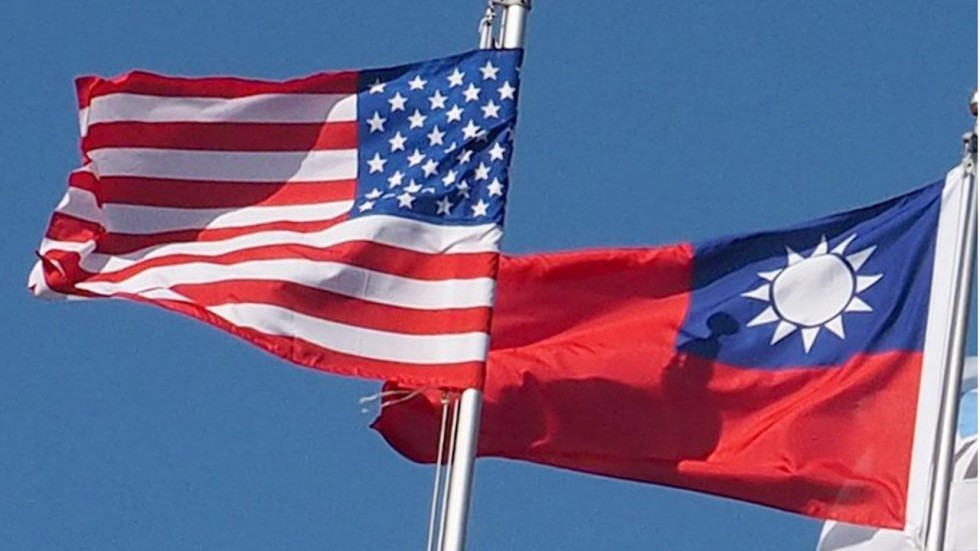US opens de facto embassy in Taiwan
June 12, 2018 | Expert Insights

The United States unveiled a new $256 million representative office in Taiwan’s capital. It is a de facto embassy that underscores Washington’s strategic ties with Taiwan as it faces escalating tensions with China.
Background
The island nation of Taiwan is a highly contested region in East Asia. It is located north of the Philippines, off the south-eastern coast of China. While Taiwan is considered a province in “Greater China,” it is largely an independent state. This ambiguity can be traced back to 1927, when the seeds were sown for a civil war between Kuomintang (KMT)-led government of the Republic of China, and the Communist Party of China (CPC). Both parties wrestled for control of China. While the civil war lasted between 1927 and 1950, particular attention was paid to the four years of Chinese Communist Revolution from 1945 to 1949.
The war came to an end when CPC captured Beijing. The leader of CPC, Mao Zedong, then officially declared the formation of People’s Republic of China. The leader of the opposing faction, Jiang Jieshi, fled to Taiwan with his 2 million followers. It is here that he declared the formation of Republic of China (ROC). PRC has repeatedly used the threat of force to ensure Taiwan (ROC) never declared independence. As far as mainland China is considered, Taiwan is a rebel force within China.
Despite the controversy that surrounds Taiwan, the region itself is economically robust and is one of the biggest traders in Asia. It is a leader in the field of computer technology. Taiwan held legislative elections in 1992, and its first direct presidential election in 1996. Since 2000, the country has experienced peaceful and democratic transfers of power. Taiwan has a democratically elected president, laws, and its own armed forces.
Taiwan and the United States have maintained unofficial relations since 1979. Following the passage of Taiwan Travel Act by the US Congress on 16 March 2018, relations between the US and Taiwan have since maneuvered to an official and high-level basis.
Analysis
The US opened its new de facto embassy in Taiwan, showing support to the government in Taipei amid mounting Chinese pressure on the island. The diplomatic base reflected the “strength” of US-Taiwan ties and would “make possible even greater co-operation for many years to come”, said Marie Royce, assistant secretary of state for educational and cultural affairs, and the highest-ranking US official in attendance on Tuesday.
Taiwan President Tsai Ing-wen said that “as free and open democracies” Taiwan and the US had an “obligation to work with one another to defend our values and protect our joint interests”. “As long as we stand together, nothing can come between us,” Ms Tsai said.
The $255 million embassy is located in Taipei’s affluent Neihu district. Its opening was a point of diplomatic tension between Washington and Beijing, with Chinese officials lobbying the US not to send a high-ranking official to Taipei to mark the occasion. The CPC, which claims Taiwan is part of its territory, opposes formal engagement with the government in Taipei.
While the ceremony had become viewed as a “test” of the Trump administration’s willingness to follow through with higher-level visits to Taiwan, Tiffany Ma, a director with BowerGroupAsia, a Taiwan-US focused consultancy, said “scrutiny over the level of seniority of US visitors has inadvertently overshadowed the momentous milestone of the opening of the long-awaited AIT (American Institute in Taiwan) facility. Symbolically, the new complex reflects US support for Taiwan at a critical time,” she added.
Taiwan has been under siege by Chinese diplomatic and military maneuvers intended to undermine its government. In March, President Donald Trump signed a law promoting increased engagement with the Taiwan. US officials criticized Beijing’s attempts to pressure US airlines to list Taiwan as a region of China on their websites as “Orwellian nonsense” and criticized the country’s increased military activities near Taiwan-controlled territory.
“This [US-Taiwan] friendship is rooted in our shared values — democracy, human rights, freedom,” said Kin Moy, director of AIT, the US’s proxy ambassador in Taiwan, adding that the new building was “a tangible symbol that the United States is here to stay”. Mr Moy added that the presence of Republican Congressman Gregg Harper at the opening also reflected “strong” bipartisan congressional support for Taiwan.
Assessment
Our assessment is that the opening of the US embassy acts as an indicator to improving ties between the US and Taiwan. China-US ties have been strained in recent months over escalating trade tensions, with both sides threatening trade tariffs against the other’s exports. We believe that the US is playing the Taiwan card to add pressure on China. The US adheres to the one-China policy which acknowledges that Taiwan is part of China, and thus, Taiwan is a sensitive issue in China-US relations. We note that Chinese pressure against Taiwan remains a grave concern to American officials. We believe that the US is keen to bolster Taiwan’s security and economy, so that it can continue as a vibrant democracy in the region.








Comments